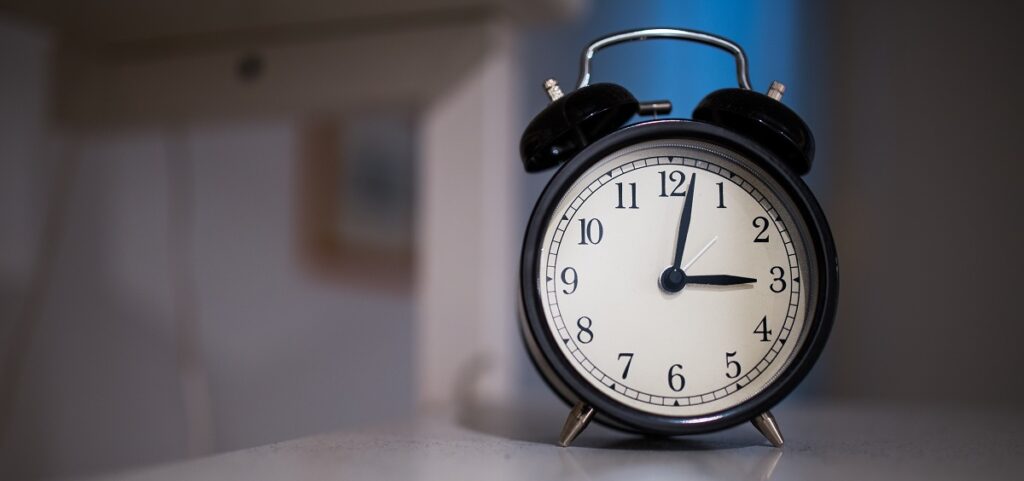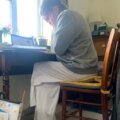Getting good sleep is essential for regeneration and healing, so if you have eczema and are going through Topical Steroid Withdrawal (TSW) you need to work on your sleep habits.
I’ve written about this before in 30 sleep remedies for eczema and TSW and have spent many hours trying to get the best night’s sleep possible and most of the time failing! It seems the more you obsess and try to get this right the harder it becomes.

And if you’re in TSW at the moment, stuff is happening at night. It just is. I don’t know what but the skin, the organs, the body is working hard at night to heal and this seems to mean all TSW people struggle to sleep. And that’s without night-time being the time being the most itchy time of day for eczema.
Writing this having had another poor night’s sleep you might think I’m pretty unqualified to comment, but getting rest when you are going through Topical Steroid Withdrawal is a life’s art! I’m getting really good at it, and that doesn’t mean I get eight hours every night, it means I’ve learnt how to prioritise rest, learn what activities contribute to a more restful mental state and how to make the most of broken sleep!
Here are my latest additions to my huge list of sleep hacks linked above.
- Water – Your skin does dehydrate at night which might explain why we can be more itchy at this time. One thing I struggle with is waking up in the night feeling thirsty and a little nauseous. I take a flask of water to bed every night, keeping it safely on the floor by the side of my bed so I can reach for it without getting out of bed. I find it really helps me feel more comfortable and I can often drop back to sleep.
- Ice – This is a great tip I got from TSW Harriet on Instagram. I’ve always found ice a great way to cool down at night, but Harriet suggests having a box by the bed with more than one ice pack inside it. You can reach for a new one when the first one has warmed up and they stay colder if kept together. If, like me, you’re on three ice pack nights, this is really useful, as again it means you don’t have to get up and so wake your body up too much.
- Snatch sleep – The weird thing about TSW is that many of us just can’t sleep well during normal night-time sleeping hours. With this in mind, I’ve shifted my day so that I don’t generally start work until 11am. This gives me time to get about 4-5 hours if I’ve only managed to fall asleep by 3-4am. I found that trying to set alarms, force myself up and working by 9am was almost impossible, as sometimes I’d not have fallen asleep until 6am. With a 7am alarm this is torture.
- Calm meditations and sleep stories – Probably one of the most useful apps I have ever used. I try to do a ten minute guided meditation before bed and also regularly check in with my mood on the app. When you do this you will be pointed to special tailored master classes and sessions based on various subjects, such as anger, anxiety, fear, loneliness. I’ve found it really helpful to listen to positive and helpful focused sessions that in turn help me rest more calmly instead of going to bed stressed about something.
- Don’t stress it – Knowing that almost all of those going through TSW struggle with sleep, if you can just accept this and go with it, it’s easier to cope with. If you are resting you will be getting some benefits from the rest. It’s amazing how little sleep we can get by on. Trust in the process and know that one day, you will be able to sleep again.
- Hot flush is OK – One thing I get nearly every time I try to sleep is a hot rush up over my face, every time and almost the minute my head hits the pillow. I’ve no idea why this happens. And it comes over me again and again throughout the night. It’s like nerve pain, also called the zingers and is worse at night. And whilst it’s uncomfortable it passes. So I have learnt to breathe through this, not to focus on how horrible it feels, try not to get upset and basically just ride it out. It does pass and it comes and goes, but eventually you will get some sleep.
I hope this helps in some way. Lack of sleep is one of the hardest things to live with throughout Topical Steroid Withdrawal. All the other symptoms could be born more easily if we could just sleep well at night, but we don’t.
What do you do to sleep better? Do you find night-time hard with your eczema and TSW?
Photo by Negative Space from Pexels












Leave a Reply